

A Freshman's First Qualifying Experience
Thoughts from the Class of 2024
9/14 CGC Staff
Photo: Golf WRX
A freshman’s first few weeks of college can be hectic, exciting, and intimidating, with freshman move-in and orientation, the first weeks of college classes, and adjusting to new-found independence. Add the pressure and schedule of being a division one athlete on top of that, and a golf team’s newest players have a lot going on in a short amount of time. Most teams begin tournament play in early September, which means that many players jump right into qualifying that determines the initial tournament lineup. The first round of qualifying can stir up a range of emotions, from nervousness and excitement, that turns into confidence. We scoured the past week’s tournament lineups for freshman that earned a spot in their team’s first lineup and asked six of the athletes to share their feelings about their qualifying experience.
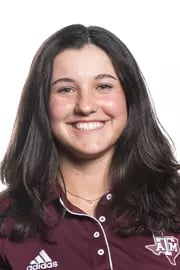

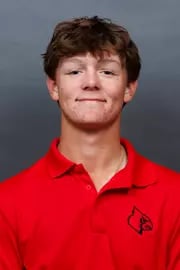

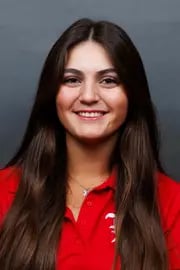

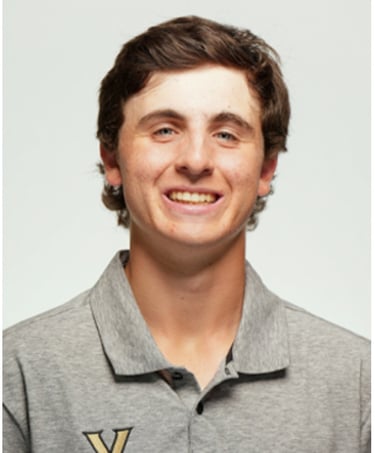





Qualifying can begin fairly quickly after athletes move in, in order to fit in a sufficient number of rounds to build a solid lineup. For some athletes, it involves learning new courses quickly or developing a familiarity with courses they may have only played a few times before qualifying started. Most athletes had 1- 1.5 weeks between moving in and the first round to prepare. Veronika Exposito, a first-year player at Louisville, was lucky to have two weeks to acclimate to her surroundings. ‘I honestly think it was a good amount of time to get to know the course since we were allowed to go out and play if we wanted to. I felt pretty prepared and comfortable when i was qualifying,’ she states. Vanderbilt freshman Ryan Downes had a week of preparation and felt he ‘learned on the fly pretty quickly’ to some of the new courses, although he had played most of them on previous visits. Vanderbilt included one new course in their qualifying rotation, but it was new to the entire team. Vanessa Borovilos, a highly regarded recruit for Texas A &M, played her first qualifying round the day before classes started. ‘We definitely just jumped right into it. Before that first Sunday round at Miramont, I had never played that course. Luckily, I got to play with national champ Adela, so she got to show me around.’ Brady Smith, a freshman at Louisville, had quite a different experience, as the local talent played his qualifying rounds at his home course which he has known since he was seven.


The number of qualifying rounds varies from team to team. Both the Louisville men’s and women’s team began the season with a three day qualifier, all held at Louisville Golf Club. The Vanderbilt and Georgia men’s teams each held their qualifiers for six rounds, with Vanderbilt using four courses over a twelve-day span. Downes felt that was fair because the golfers could take time to practice between rounds. Matt Moloney, a Georgia freshman, notes that the Bulldogs played a variety of three courses. Oklahoma, the current home of first-year Clark Van Gaalen, had the longest initial qualifier on two courses. He explains ‘What we did this week was three, three round qualifiers. The winner of each qualifier will get a spot and at the end of the 3 qualifiers the cumulative leader will get a spot as long as they haven’t already qualified and then there will
sometimes be a coaches pick, such as this week. Otherwise they will be picked in order from the cumulative leaders.’ That system definitely keeps things interesting! While some teams space out their qualifying rounds with a day or two in between, Texas A&M women play mainly on weekends. Borovilos says ‘Our main course, Traditions, is under renovations right now, so all of our qualifying rounds have been at a course called Miramont. Our coach likes to do qualifying rounds on weekends, so we played Saturday & Sunday one weekend, then the following Friday-Sunday, or thereabouts, the next.’ Typically, her team’s qualifying is 3-4 rounds, but the coach added an extra round, as the athletes needed to earn a trip to Pebble Beach. Imagine playing there for your first college tournament! Each team had random pairings for the first round of qualifying, then re-paired by score and leaderboard placement in subsequent rounds, to make it feel more like a tournament.
Louisville Golf Club
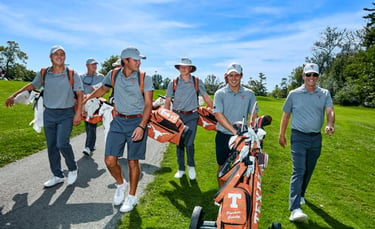

Photo: Golf Digest
The athletes had a range of emotions going into qualifying, with many feeling nervousness that eased as the rounds progressed. The returning team members were welcoming but it remained a competitive environment. Van Gaalen summed up his feelings by saying ‘Going in as a freshman, I knew I needed to perform and was looking at this first qualifier as a great learning experience. I was definitely nervous the first couple rounds but then I started feeling a little more comfortable.’ Borovilos adds, ‘Even though it wasn’t a tournament, I’ll tell you I was nervous. It wasn’t so much about being a freshman, but just about wanting the chance to play, especially at Pebble Beach. Qualifying rounds are a bit stressful, but we all try to have fun out there as a team.’ Downes agrees, stating ‘I didn’t feel intimidated by anyone, but I was definitely nervous on the first hole of round 1. It was a whole new experience for me but I thought it went really well.’ Moloney and Smith, on the other hand, were pretty relaxed, with Moloney noting that it felt serious but not pressure filled, as the returning players and coaches kept it light. Exposito also appreciated the welcoming environment and was happy that it already felt like home to her.
Determining lineups from qualifying varies from team to team, as different coaches have their own preferred methods of choosing their lineup. Three of the four athletes who answered this question explain that the first lineup was chosen solely by qualifying scores, with no exemptions given. After the first tournament, exemptions are earned for some teams based the golfers finish in the tournament. One athlete notes that three teammates had exemptions going into qualifying, with two open spots up for grabs.
It is impressive for a freshman to make a lineup for the first tournament, especially because the returning players are much more familiar with the competitive courses (well, unless you’re Louisville’s Smith). We asked the players how much of an advantage they felt the returning players had over the newcomers due to course familiarity. Moloney was thankful for the returners’ help before playing, saying ‘Our courses aren’t too complex so they’re fairly straightforward. With that being said, there is still some knowledge that helps, but the older guys took the new guys around and helped us learn the little things before we started.’ Borovilos, Exposito, and Downes agree that course familiarity helps, with Borovilos offering ‘For other players, it definitely helps to know the course. It takes a little while to learn the subtle breaks on the greens and just the overall layout. However, in the end, no amount of course knowledge will help if your game isn’t in the right shape, so it just comes down to practice. It’s been about 2 weeks of playing at Miramont and I feel like I’m already well adjusted to it. With other courses it may be different, may take longer or shorter, or you may be good to go after one round. It really depends on the comfort level you feel when you first step foot on the track.’ Downes feels he made a few mistakes he likely wouldn’t have made if he had played the courses many times before, but ‘That is just things we deal with as freshman, and it makes you tougher.’ Exposito adds, ‘I think returning players do have an advantage in how well they know the course and how comfortable they are playing it because it's what they have done a lot in the past years. In regards to knowing the course well, I do feel like I know my way around it pretty well but there is definitely a lot of room for me to feel more comfortable around it as I keep playing.
Congrats to all of the freshman who have competed in their first tournament thus far, and best of luck to the many who will add ‘first collegiate tournament’ to their resume as the 2024-2025 season progresses!

